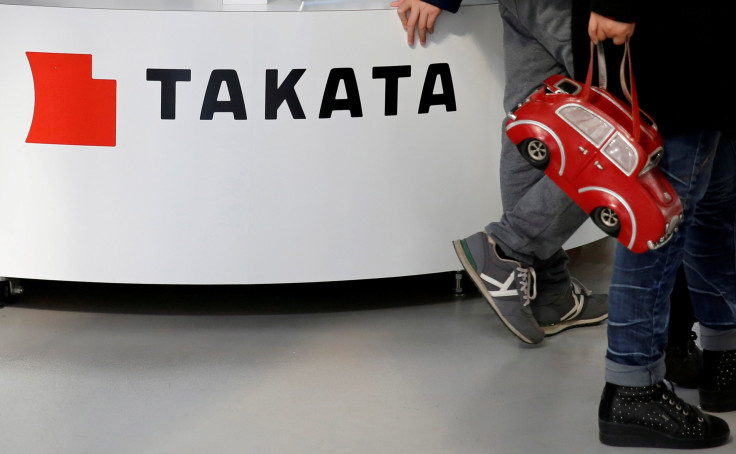Takata Airbag Recall 2017: Company May Plead Guilty Of Criminal Wrongdoing Under $1 Billion Settlement With US Regulators

Japanese airbag manufacturer Takata Corp. may plead guilty to criminal wrongdoing as part of a $1 billion settlement with the U.S. Justice Department over its handling of defective airbag inflators as early as Friday, sources told Reuters. Takata’s shares went up by 16 percent after the report was published Friday.
According to the sources, the settlement with DOJ includes a $25 million criminal fine, $125 million in victim compensation, and $850 million to compensate automakers who have suffered massive losses due to the recalls. The settlement also calls for an independent monitor of the Japanese manufacturer involved in the “world’s biggest auto safety recall,” the report said.
Takata’s airbag inflators contain ammonium nitrate, which when exposed to moisture and high temperatures can deteriorate over time. The defective airbags lack the chemical drying agent required to prevent this damage. Increased internal pressure in the airbags can cause the inflators to burst, causing metal fragments from inside to puncture the airbag, resulting in a spray of metal pieces that may lead to injury or death.
Over the past year, Takata has issued massive recall orders across the world because of its defective inflators that have caused 11 deaths in the U.S. and injured at least 184 people in the country. Automakers so far have recalled 29 million vehicles in the U.S. with 46 million Takata airbags, while almost 100 million vehicles have been recalled across the globe.
“Takata has taken a step forward regarding the airbag issue with the U.S. Justice Department and this is being taken positively by the market,” said Mitsushige Akino, executive officer at Ichiyoshi Asset Management, according to Fortune.
Takata, in a separate $70 million settlement with U.S. auto safety regulators in 2015, admitted it was aware of a defect in its airbag inflators but did not issue a timely recall. The firm’s woes are not over yet and it could still face a potential $10 billion in liabilities following the massive recalls.
© Copyright IBTimes 2025. All rights reserved.






















